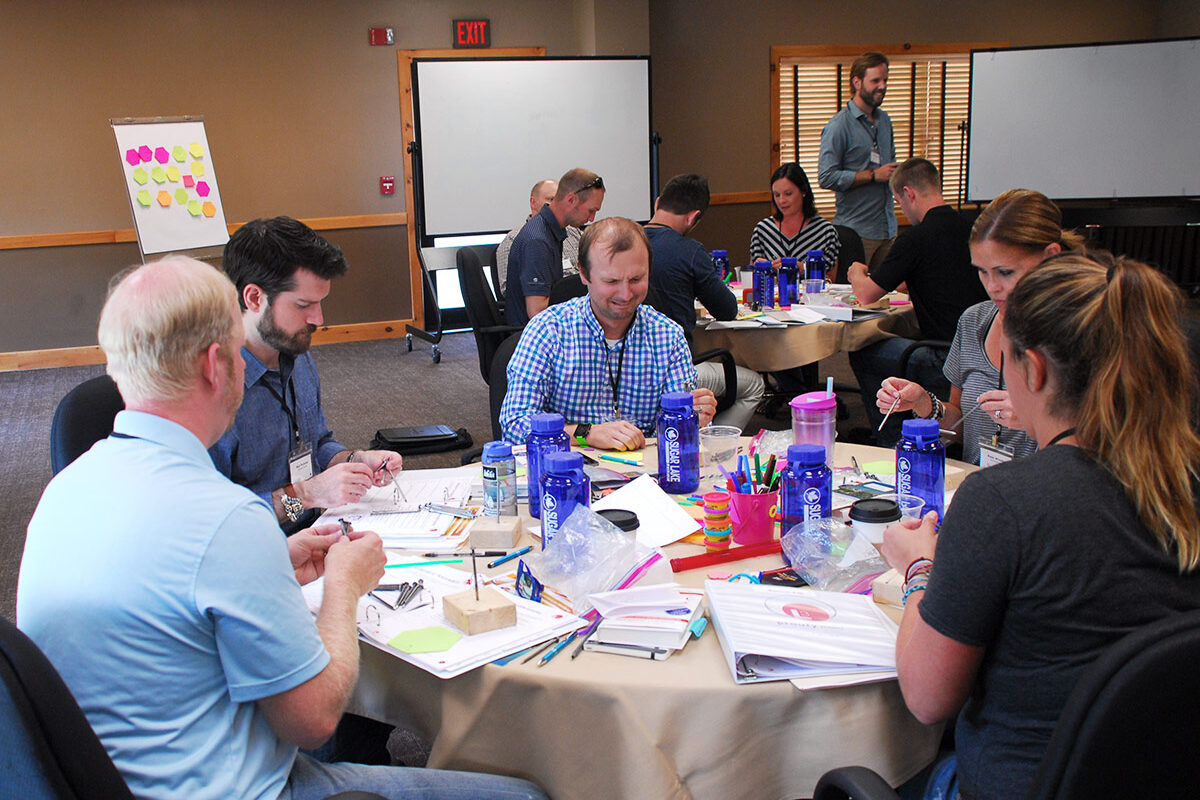What is experiential learning, and why is it an integral part of the leadership development process? For decades, leadership development courses and retreats have relied upon seminars, lectures, lessons, and other sorts of formal educational tools to shape the new leaders of tomorrow’s businesses. While these things have worked in the past, they are far less influential on today’s leaders than “experiential learning,” a learning process that is triggered by memorable experiences.
At Sugar Lake Lodge, our leadership development retreats offer more than simple lessons on how to become a better leader. They are highly experiential programs designed to create a collaborative space that enhances the capabilities of participants not by simply teaching them to be better, but by confronting them with heavily engaging challenges that force attendees to put into practice what they are being taught.
This is the foundation of experiential learning.
What is Experiential Learning?
Cutting to the chase, experiential learning is a “learn-by-doing” process that allows up-and-coming leaders to:
- Learn techniques, skills, and methodologies that make for better leaders
- Put those skills into practice by solving challenging (and often unexpected) problems that reflect real-world situations and conflicts
- Work with and communicate with others to adapt and overcome
- Stretch outside of their comfort zone
- Take charge, make decisions, and be held accountable for outcomes
- Get creative with their proposed solutions
- Reflect on their decisions, critically analyze them, and learn from their mistakes
Experiential learning is more than a learning process, it’s an experience that challenges a person physically, mentally, emotionally, and socially. It requires a person to get up, move, think, react, reflect, and decide on a course of action while working closely with others.
The Problem with “Standard” Leadership Development Programs
As human beings, we are defined by our experiences and the memories we retain from them. Each experience shapes us from the moment we are born—creating new memories—and no two people are the same because of the unique experiences we have had in our lifetime. We form bonds with others not because of the similarities in what we know, but through the shared experiences we have with one another.
We better retain information if it’s connected to an experience, rather than a lesson. We also remember experiences when there’s a significant amount of emotion connected to them. Experiential learning takes you out of the classroom settings, the c-suite seminars, and the lecture halls, instead putting leaders in emotional situations that solidify the lessons being taught.
Renowned American educator Edgar Dale said it best through his “Cone of Experience,” saying that we remember:
10% of what we read.
20% of what we hear.
30% of what we see.
50% of what we see and hear.
70% of what we say and write.
90% or what we do.
The Best Way to Implement Experiential Learning in Leadership Development
What’s needed for a successful leadership development retreat that is centered around experiential learning?
There are several key factors:
- The right place: choose a retreat location that is isolated from the distractions of the real world and large enough to host the types of challenges you have planned.
- Mystery: attendees should have no knowledge of the tasks and challenges that await them. A bit of mystery and curiosity are crucial to the experience.
- The right facilitators: experiential learning is an entire field of study! Choose facilitators that have worked in this space for years!
- A plan: some spontaneity is good, but everything you do in your program should be intentional. Create a course that is tailored to the needs and goals of the attendees!
Bring your team to a unique, distraction free retreat venue in Minnesota! Contact Sugar Lake Lodge today to ask about our retreat planning process!

